The green transformation of Germany’s economy has become the key theme for the upcoming general election. All major parties promise to tackle climate change, although they differ in their means towards this objective.
The transformation will have a massive impact on many aspects of economic policy. The conversion of Germany’s key automotive industry and the greening of brown industries could uproot companies and their workers. Higher carbon taxes could weigh on firms and households, affecting their international competitiveness and requiring new transfers. Large investment needs—estimated at more than 1 trillion euros—will weigh on corporate balance sheets and public debt. The transformation will also have ramifications for Germany’s trading partners, as supply chains need to be greened or curtailed, and a European carbon border tax could be levied on imports.
How will a future government approach these challenges? What will this all mean for Germany’s role in Europe and the world?
The second event of the two-part series organised in cooperation with Open Society Foundations will bring together academics and policymakers for a debate on the economic policies that will shape the election.
Panelists
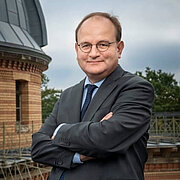
Ottmar Edenhofer is Director and Chief Economist at the Potsdam Institute for Climate Impact Research (PIK) and Director of the Mercator Research Institute on Global Commons and Climate Change (MCC). Furthermore, he is professor at the Technical University of Berlin and considered one of the world's leading experts on the economics of climate change, being a member of the German Academy of Science and Engineering acatech and the German Academy of Sciences Leopoldina. Edenhofer’s scientific expertise is sought by policy and international organisations likewise. He advises Chancellor Merkel, Foreign Minister Heiko Maas, German President Frank-Walther Steinmeier and the World Bank, among others. In 2021, he was awarded the prestigious German Environmental Prize by the German Environmental Foundation (DBU) amongst others for his outstanding achievements in the field of carbon pricing. Edenhofer’s work has been picked up e.g. by The New York Times, the Economist, China Daily Nature, Der Spiegel, ARD, ZDF and Deutschlandfunk. He frequently contributes to major media publications such as DIE ZEIT, Süddeutsche Zeitung and Frankfurter Allgemeine Zeitung.
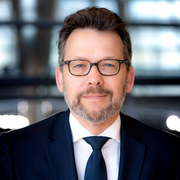
Otto Fricke is a member of the German Parliament, the Bundestag, and budgetary spokesman for the FDP parliamentary group. After his high school diploma and military service, which partly took place in the Netherlands, he studied law in Freiburg. There he passed his first state examination in law in 1992. The second followed in 1995 in Düsseldorf. Since then he has worked as a lawyer in Krefeld-Uerdingen. From 2002 to 2013, the father of three children was already a member of the Bundestag, from 2005 to 2009 chairman of the budget committee and from 2009 to 2013 parliamentary managing director of the FDP parliamentary group. From 2009 to 2013, he headed the German-Dutch parliamentary group - not only due to the fact that he speaks Dutch fluently. Since 2013, he worked as a management consultant in Berlin before he was reelected in 2017.
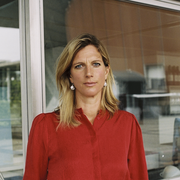
Maja Göpel is a political economist and important voice for a sustainable transformation of society working at the intersection of economy, politics and society. From 2017 to 2020, the bestselling author (“Unsere Welt neu denken”) and sought-after speaker was Secretary-General of the German Advisory Council on Global Change (WBGU). In 2019, Maja Göpel was appointed Honorary Professor at the Leuphana University of Lüneburg. She is a member of the Club of Rome, the World Future Council, the Balaton Group, the Bioeconomy Council of the German Federal Government and a co-initiator of the “Scientists for Future” network. Since 2020, Maja Göpel has been Director of Research at The New Institute, Hamburg, which develops ideas for substantially redesigned societies.
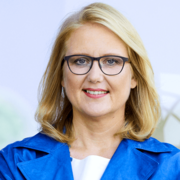
Lisa Paus is Member of the German parliament since 2017, spokesperson for financial policy, leader of the finance working group of ALLIANCE 90/THE GREENS, member and chairperson of the finance committee and spokesperson for the Berlin Deputies of ALLIANCE 90/THE GREENS. She represents the Green Group in the Wirecard committee of inquiry.
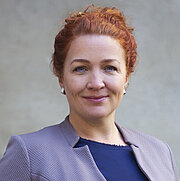
Carolin Schenuit has been Managing Director of FÖS since October 2020. As an industrial engineer with a degree in environmental planning/environmental technology, she has spent the last 15 years working both strategically in the field of energy policy and implementation-focused in the renewable energy sector. Before joining FÖS, she led the team for market and system integration of renewable energies at the German Energy Agency. There she worked on topics such as energy market design, CO2 pricing, flexibilisation of the energy system and grid regulation and was responsible for numerous research and cooperation projects at national and international level. Prior to that, she worked in the renewables project business in several management functions (purchasing, product management, supplier quality management) and helped to drive forward the expansion and cost reductions of renewables in Germany and abroad.
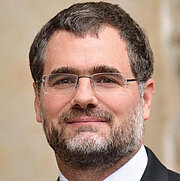
Wolfgang Schmidt is State Secretary at the Federal Ministry of Finance. His portfolio includes policy planning and strategy, economic and fiscal policy strategy, and international economy and finance. Prior to his appointment in March 2018, he served for seven years as State Secretary and Plenipotentiary of the Free and Hanseatic City of Hamburg to the Federation, the European Union and for foreign affairs. During his mandate in Hamburg, he was a member of the European Committee of the Regions from 2015 to 2018 and chair of the Conference of the Länder Ministers for European Affairs in 2014–2015. Wolfgang Schmidt previously served as director of the International Labour Organisation (ILO) in Germany and as chief of staff to the German Federal Minister for Labour and Social Affairs and head of the Labour Ministry’s policy and planning unit. He is a lawyer by training.
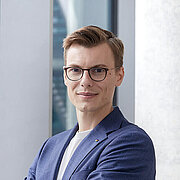
Kai Whittaker has been serving as the chairman of the CDU/CSU working group on the Parliamentary Advisory Council on Sustainable Development since April 2018. Having been active for the Christian Democratic Party since his early youth, Whittaker represents the local constituency of Rastatt in the German Bundestag since 2013. He is a member of the parliament committee for "Labour and Social Affairs". Whittaker worked as a senior advisor to the management board for two German companies for a total of four years. In Roth, close to Nuremberg, he worked for Leoni AG, Europe's leading supplier of wires, optical fibers, cables and cable systems. In Schwanau, close to Lahr, he worked for Herrenknecht AG, the global market leader in mechanised tunnelling technology. He graduated with a BSc in Economics and Management from the University of Bristol and completed an MSc in European Political Economy from the London School of Economics.
Moderator
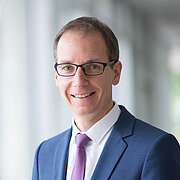
Jochen Andritzky is member of the Next Bretton Woods Group at the Peterson Institute for International Economics. Previously, he served at the International Monetary Fund (IMF) in Washington DC where he worked on the euro area crisis and served as adviser to the National Bank of Ukraine in Kiev. He was the Secretary General of the German Council of Economic Experts from June 2015 to April 2018. He obtained degrees in economics and politics from the University of St. Gallen, Switzerland. Following a visiting scholarship at the University of California UCSC, he completed his dissertation on debt crises at the University of St. Gallen in 2006.
Photo credit: Portrait Kai Whittaker © Steven Vangermain

